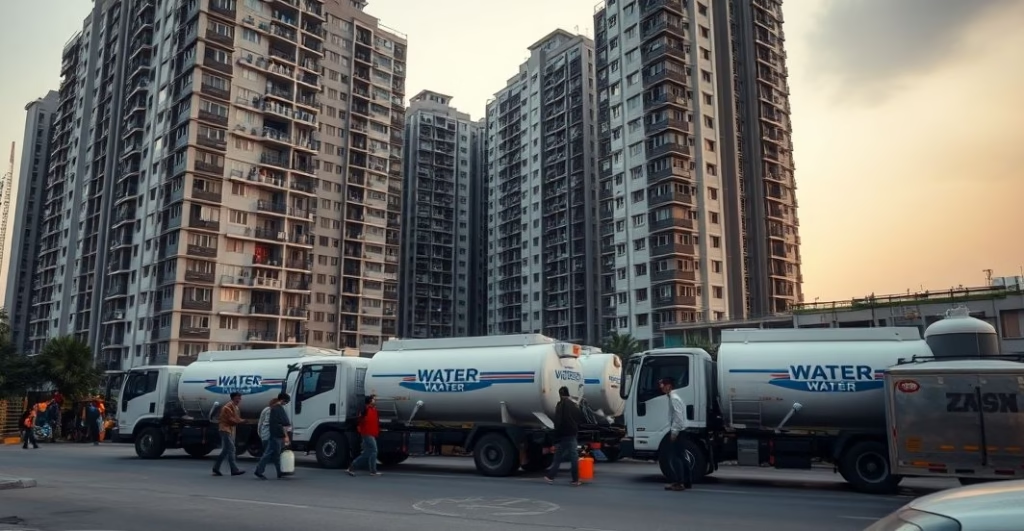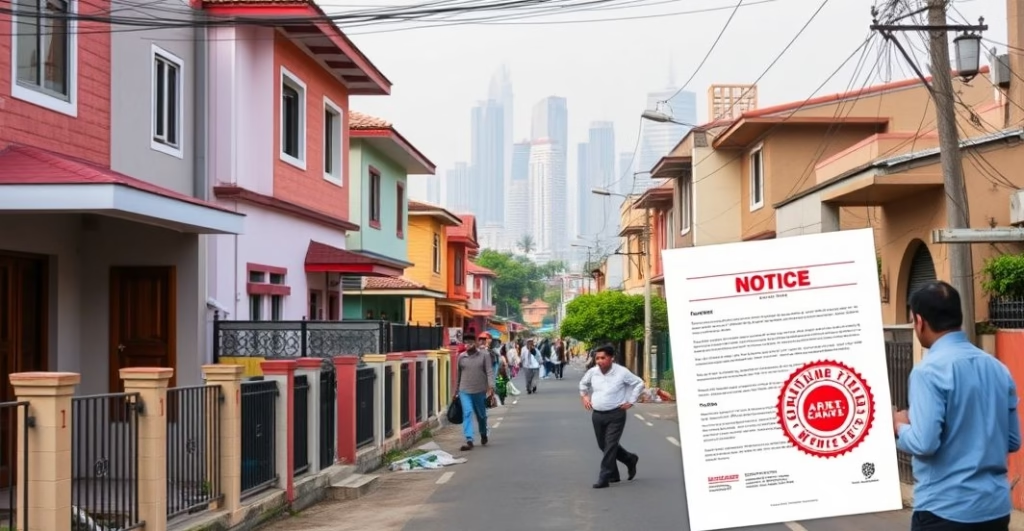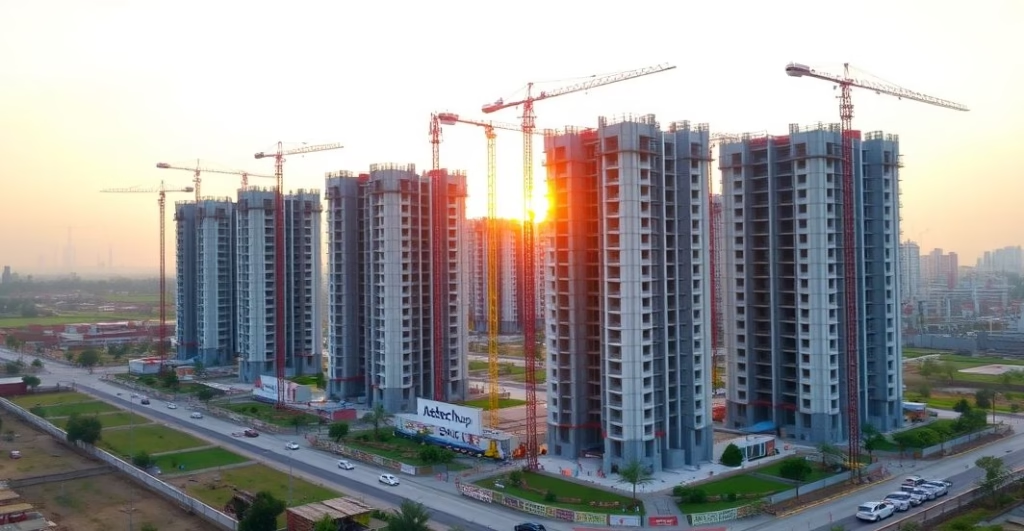Auto-published by Growwh – a smarter way to scale content and marketing. Want to know more? Chat with us.
Noida’s Antriksh Golf View residents face a prolonged water crisis, relying on private tankers while the developer seeks Rs 29,500 per flat for new connections.
Severe water shortage in Antriksh Golf View 2
Residents of Antriksh Golf View 2 in Noida’s Sector 78 have been coping with a severe water crisis for months. Of the 1,055 flats across 12 towers, only 650 units have sanctioned connections from the Noida Authority. The remaining households rely heavily on private tankers to meet daily needs, creating recurring expense, stress and health concerns.
How the tanker solution is costing residents
To plug the gap, the developer and facility manager have been arranging private tankers. Last month alone, 306 tankers delivered about 72 lakh litres of water at a billed cost of Rs 5.9 lakh — an amount passed on to residents via maintenance bills. Many complain they are paying for low-quality tanker water and still buying drinking water separately.
Developer demands and allegations
Residents report receiving text messages asking for an additional Rs 29,500 per flat to secure new water connections. This demand piles financial pressure on families already struggling with erratic supply. Growing distrust has also been fuelled by broader apprehensions about developer practices in the city, with residents increasingly wary after other high-profile property disputes and fraud cases such as Noida homebuyer fraud case involving Sikka Directors.
Noida Authority response and technical limits
Noida Authority officials inspected the site and clarified that the sanctioned supply currently covers only the 650 connected flats via two 140 mm pipelines. The authority’s position is that there is no shortfall on their end for the sanctioned capacity and that additional supply will be arranged only after the developer obtains new connections.
Residents’ actions and civic unrest
Frustrated residents have filed complaints through the Integrated Grievance Redressal System (IGRS) and raised issues with their residents’ welfare association. This agitation is part of a pattern of local disputes over infrastructure and civic planning; similar community actions have arisen elsewhere in the city, for example Noida residents protest RMC plant blocking local roads, reflecting growing demand for transparent, accountable urban services.
Legal notices, demolitions and community tensions
Infrastructure problems often overlap with enforcement and regulatory disputes. While some residents fight to secure basic services, others contend with municipal notices — an ongoing example of the complex, sometimes adversarial relationship between homeowners and civic authorities: Noida residents fight demolition notices for home extensions. These overlapping conflicts can delay practical fixes and escalate community tensions.
Practical steps for affected residents
- Document shortages: Keep dated records of tanker deliveries, bills and messages about connection demands.
- File and follow up on official complaints via IGRS; escalate to higher authority if responses are delayed.
- Request an independent audit of maintenance charges related to tanker water to ensure transparency.
- Organise collective representation through the RWAs to seek interim measures (bulk RO plants, centralized tanker procurement, scheduled deliveries) while additional connections are processed.
- Explore legal options if the developer fails to secure sanctioned supply or disproportionately passes costs to residents.
What authorities and developers should do
Immediate priorities include fast-tracking additional sanctioned connections for the remaining flats, providing clear timelines and fee breakdowns, and ensuring tanker water quality is monitored. Transparent billing practices and third-party audits of maintenance charges would help restore trust.
Conclusion
The situation at Antriksh Golf View 2 highlights weaknesses in urban service delivery where sanctioned infrastructure lags behind actual occupancy. Until additional connections are approved and implemented, residents will continue to shoulder the burden of private tankers and inflated maintenance bills. Coordinated action by residents, stricter oversight by civic authorities and accountable developer practices are essential to resolve the crisis swiftly and prevent recurrence.
This article was auto-generated as part of a smart content campaign powered by Growwh.com. Curious how we do it? Chat with us to learn more about our content automation systems.


